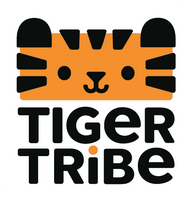
In September 2020 Tiger Tribe kicked off a new and important charity partnership with the Foundation for National Parks & Wildlife (FNPW), an impact driven non-government organisation that funds critical conservation projects across Australia to help safeguard Australian wilderness areas and wildlife for future generations.
2020 was a tumultuous year of natural disasters for Australia (not to mention the global pandemic), but not surprisingly also a record fundraising year for the FNPW. Tiger Tribe is immensely proud to have contributed (in our own small way) to this fundraising milestone, with every purchase made by a Tiger Tribe customer supporting the work of the FNPW — growing national parks and saving species across Australia.
We thought it was about time we filed an update report to share some good news about FNPW’s recent conservation projects that your purchases helped fund.
1. Wildlife Heroes
Through their dedicated Wildlife Heroes project, FNPW distributed $1.4M worth of grants and resources in 2020/21, to support more than 20,000 wildlife rescue and rehabilitation volunteers and wildlife friendly vets across Australia.
A wildlife friendly vet is one that supports the rescue and rehabilitation of native wildlife. But did you know vets don’t get paid to treat native animals and often struggle to fit these cases in around domestic pets and farm animals. Additionally, the unique characteristics of Australian animals means many vets discover that their formal education does not adequately prepare them for emergency wildlife care.
Enter FNPW’s Wildlife Friendly Vets (WFV) Program. Under the ‘Wildlife Heroes’ umbrella, the program was launched earlier this year to help close some of these gaps, by providing WFVs with financial support to better train for the specific needs of native animals. The program also includes a communications campaign to raise awareness of the challenging and unpaid animal rescue work that vets do, along with supporting wildlife rescue coordination between carers and vets, especially during emergencies.

To be eligible to join the Wildlife Friendly Vet community, you must be a veterinary clinic, vet or vet nurse that is committed to providing quality care to native wildlife. Joining the community provides access to training, grant opportunities, community announcements and numerous resources to improve knowledge and treatment of Australia’s native wildlife. Nominate here
2. Yengo Rock Art
As part of the Healing our Land initiative, FNPW’s current focus is to repair the damage inflicted on Australia’s bushland, native animals and historic indigenous sites, following the devastating bushfires of 2019/20.

Funded through an Emergency Bushfire Recovery Grant, significant historic aboriginal sites within the Yengo National Park and surrounding country were visited by Wonnarua elder Warren Taggart and a team of volunteers to determine fire impacts and to document any unrecorded sites revealed by the burnt back vegetation.
The grant allowed more than 67 sites to be surveyed, photographed and GPS confirmed, documenting significant art including drawings, artefacts and hand stencils. Two previously unrecorded caves were discovered with significant drawings and stencils, stone arrangements, engravings and new grinding groove sites, believed to be in excess of 4,000 years old.
The good news is that most of the sites survived the fires, although some damage was noted in a number of caves from eroding winds during the firestorm and trees that burnt into cave overhangs. The team worked with national park rangers and provided updated documentation to the Aboriginal Heritage Information Management System (AHIMS).
3. Bushfire Recovery Nurseries
After the Black Summer bushfires, FNPW committed to plant one million trees (by 2025) in bushfire recovery nurseries around the country.

With a number of major sponsors on board including One Tree Planted, L’Occitane Foundation and Global Living, along with donations from FNPW supporters across Australia, the bushfire recovery nurseries are the first step in significant replanting following the impact of bushfires on tree species.
The program currently includes four community nurseries committed to growing seedlings native to their local region, with more nurseries coming on board over the duration of the project. With a focus on propagating native and indigenous plants for landscaping, erosion prevention and re-building habitats for affected species (including the glossy black cockatoo and koala), trees from the Bushfire Recovery Nurseries will be planted in national parks across Australia, as well as other public and private lands that have been affected by bushfires.
“The Bushfire Recovery Nurseries are an important step towards immediate bushfire recovery. Whilst we cannot ensure tree growth in bushfire affected areas right now due to restricted access and the severity of fires, we can plan towards the future when we will be able to plant trees at scale. It’s essential for the regeneration of Australia’s future,” says Ian Darbyshire, CEO of the FNPW.
